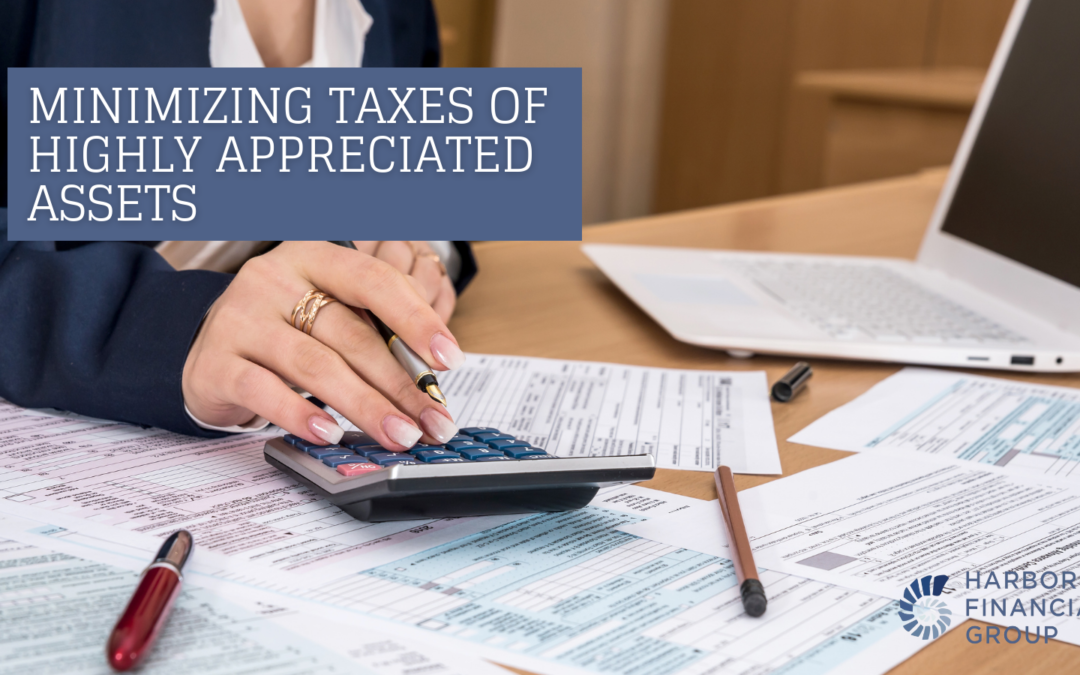Introduction
If the value of your stocks, bonds, or other capital investments has increased substantially, there are a few steps you can take to minimize taxation. These include timing the sale of your capital assets, using capital losses effectively, and passing assets to heirs at your death. In addition, you might consider charitable giving.
Timing the sale of assets is important
Generally, you can choose when to sell your investments, potentially shifting taxes owed. Therefore, if your capital assets have appreciated substantially, you can control when you recognize the profit (capital gain) on these investments. If you are in a high tax bracket, you may want to hold on to your highly appreciated investments for longer than 12 months in order to get favorable long-term capital gains tax treatment. Long-term capital gains are generally taxed at special capital gains tax rates of 0%, 15%, and 20% depending on your taxable income. By contrast, because short-term capital gains are taxed as ordinary income, the top short-term capital gains tax rate can be 37%. Higher-income taxpayers should be aware that they may be subject to an additional 3.8% Medicare unearned income tax on net investment income (unearned income includes capital gains) if their adjusted gross income exceeds $200,000 (single filers) or $250,000 (married joint filers). As you can see, a little patience can pay off handsomely.
Moreover, if you expect to have substantial tax deductions in a particular year, it may be wise to wait until that year to sell, so that the resulting gain can be offset.
Using capital losses effectively
You can minimize taxation of your capital gain income by using capital losses effectively. More specifically, you can generate capital losses to offset capital gains, and you can use your capital gain income to utilize unused losses. Capital losses must be netted against capital gains in a specific manner. Excess losses may offset up to $3,000 ($1,500 if married filing separately) of ordinary income per year. Losses remaining after the limit may be carried forward indefinitely to offset future income.
Planning with capital losses can be an important method of minimizing taxes on highly appreciated assets. If you expect to recognize a substantial capital gain this year, you should review your portfolio to make use of any capital losses you may have.
Is it better to gift highly appreciated assets during your lifetime or to pass them to others at death?
Property that has already appreciated substantially may not be the best candidate for a lifetime transfer or gift. That is because the recipient of a gift takes a carryover basis in the property; that is, the recipient’s basis in the property is the same as your basis was. In contrast, the basis of property passed at your death is generally stepped up (or down) to its fair market value (FMV) at the time of your death.
You may not want to give highly appreciated property if the donee will recognize a substantial capital gain when the property is sold.
On the other hand, you may want to make that gift if the sale of the property is imminent anyway and the donee is in a lower tax bracket.
You (the donor) may increase the basis of appreciated property by the portion of any federal gift and generation-skipping transfer taxes you pay that are attributable to the appreciation element. Since the donee takes a carryover basis, the capital gain recognized by the donee will be less than it would have been without the adjustment. You cannot increase the basis of the property any higher than the property’s fair market value on the date of the gift.
Remember, you can currently make federal tax-free gifts of $15,000 per recipient under the annual gift tax exclusion. If you exceed this amount, you may owe gift tax, however, gift tax owed may be offset by your applicable exclusion amount to the extent that is available.
Gifting highly appreciated assets to charity
When you donate stock or other intangible long-term capital gain property to a qualified public charity, you can deduct the full FMV of the property to the extent that it does not exceed 30 percent of your adjusted gross income. Any amount that cannot be deducted in the current year can be carried over and deducted for up to five succeeding years. You benefit in two ways: (1) you get a tax deduction, and (2) you remove interest, dividends, and/or capital gains from your investment portfolio. If you wish to donate highly appreciated assets to charity, however, it is important to apprise yourself of all relevant rules. Also, certain types of property may be more advantageous to donate to charity than others.
Content in this material is for general information only and not intended to provide specific advice or recommendations for any individual. All performance referenced is historical and is no guarantee of future results. All indices are unmanaged and may not be invested into directly.
The information provided is not intended to be a substitute for specific individualized tax planning or legal advice. We suggest that you consult with a qualified tax or legal professional.
LPL Financial Representatives offer access to Trust Services through The Private Trust Company N.A., an affiliate of LPL Financial.
This article was prepared by Broadridge.
LPL Tracking #1-533048


